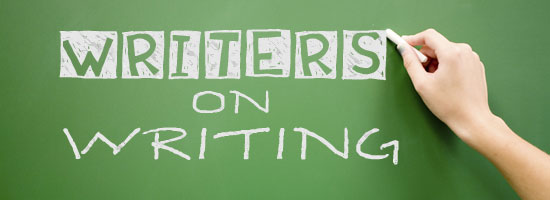Mentors Gone Bad: A Primer for New and Emerging Writers
Rae Bryant
I am fortunate to have good teachers and mentors, though I’ve witnessed less than optimal mentorships secondhand, through the reports of friends and colleagues, a few who I have spent hours nursing back from what I can only akin to Dr. Frankenstein’s recounting of his monster, and as in Victor Frankenstein’s case, these writers sometimes had their parts in it, more often than not, brought on by misguided expectations, doe-eyed fancies or rushed engagements, such as it may be for writers early in their careers, but these are unnecessary lessons for the smart and savvy writer. New and emerging writers can engage in safer and smarter mentoring practices.
Merriam Webster defines a mentor as “a trusted counselor or guide,” named for Homer’s character, Mentor, who governed the education of Telemachus. Famous literary mentorships include James and Wharton, Joyce and Beckett, Pound and Eliot, Baldwin and Angelou, Carver and McInerney… a tradition of confidantes, guides, and allies in an often opaque field where an opened door and extended hand can make a difference. But equally important, essential to remember, is that mentors can go bad. Or they can be rotten from the start. And this, my friends, you must remember. A mentor gone bad can be worse than not having a mentor at all. In this essay, we will consider ways to limit the risk of bad mentor infection, how to recognize when a mentor has gone bad, and how to disconnect from a mentor who has become a detriment to the writer’s craft and/or progress.
Limiting Bad Mentor Infection: The Head Condom
New writers too quickly seek intimacy with established authors. Preemptive screening and prophylactics are always a good idea. The Head Condom is a particularly useful tool when screening potential mentors. Consider the following scenario in which we will name the new writer, “Writer,” and the established writer, “Author.”
Writer meets Author for coffee at the local café because Writer would like to interview Author for a literary journal. Writer has read all of Author’s works and wants very badly to give Author a personal short story for critique. They have never met or spoken, only a few quick emails. In this scenario, Writer visualizes unrolling a three foot condom over Author’s head.
It is too easy to take what established authors say as literary scripture. Even if Writer loves Author’s works or finds Author to be a swell coffee companion that does not mean the mentor and protégé styles are simpatico. The work, the mentorship, and the person are all separate entities and must be assessed individually. Until an organic connection has established, use a protective membrane.
Recognizing Mentors Gone Bad
If a writer has already engaged in a mentorship that is now in distress, the following telltales will help to determine if, in fact, the mentor has gone bad.
- Mentor has a tendency to get drunk in public, baring lewd words, sometimes standing on bar tops and jiggling phrases without an ounce of restraint;
- Mentor is promiscuous with mentorship, neglecting to limit his or her number of mentees so to give proper individual attention;
- Mentor tells mentee he or she loves mentee’s work but can’t remember the title or a single character’s name;
- Mentor promises blurbs and readings and collaborations but does not return mentee’s phone calls.
Remember, mentors are human. They will not always be in the best of spirits or be physically or mentally well or have the perfect words at the perfect time. They have families and writing projects and lives of their own. They are also tasked with a form of discipline. Like too lenient parents, a too lenient mentor will teach bad habits to young writers. And in the case of writing mentorships there is an additional consideration. Writing, as with any art form, is a different animal, a sublime pursuit. Sublimity is a twofold entity. Like Shelley’s Mont Blanc, the craft of writing is the realm of both elation and of vulnerability, of danger, an avalanche of words and joys and disappointments to drown even the most versed of writers. In the right or wrong circumstances, the yield of all this difference and sublimity can charge the mildest of temperaments.
Disengaging from a Mentor Gone Bad
If one finds him or herself caught in a mentorship gone bad, use basic rules of politeness and business sense. Make as graceful an exit as possible. Use please and thank you. Keep one’s unconstructive comments to oneself. Do one’s part to keep pathways and communications open when at all possible. And remember: the business of writing and publishing is a relatively small space with a bevy of tightly packed people all working their way toward the center. Being reactionary, rude, gossipy, or pushy will quickly spread through the space and turn a bad patch into something farther reaching with unanticipated effects. All writers live with disappointment. Learn how to constructively handle your disappointment.
So new writers, keep your wits sharp. Use your prophylactics and good manners, and when a big, bad author turns an eye on you and shows interest, proclaims your talent or potential, step back, tread gingerly, remember you are the master of your craft and progress, as developed or burgeoning as it may be.
 Rae Bryant lives in the Washington D.C. area. Her short stories have appeared in BLIP Magazine (formerly Mississippi Review), Gargoyle Magazine, Opium Magazine, PANK and Foundling Review, among other publications and have been nominated and short-listed for short story and best of web awards. She has work forthcoming in StoryQuarterly, Puerto del Sol, and the PS Books anthology En(Un)Gender Me. She is a VCCA Fellow and earned her Masters in Writing from Johns Hopkins University.
Rae Bryant lives in the Washington D.C. area. Her short stories have appeared in BLIP Magazine (formerly Mississippi Review), Gargoyle Magazine, Opium Magazine, PANK and Foundling Review, among other publications and have been nominated and short-listed for short story and best of web awards. She has work forthcoming in StoryQuarterly, Puerto del Sol, and the PS Books anthology En(Un)Gender Me. She is a VCCA Fellow and earned her Masters in Writing from Johns Hopkins University.

